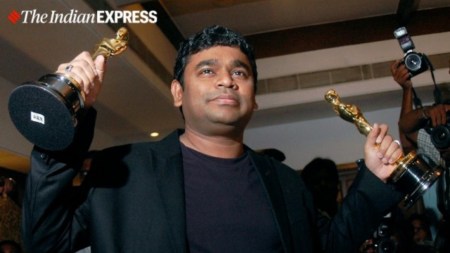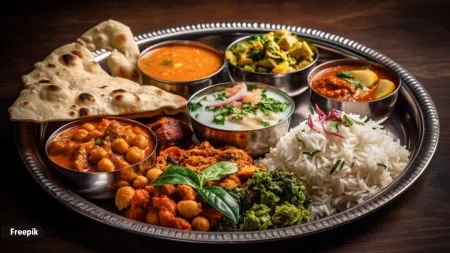Prabha Atre, the classical vocalist, who challenged conventions of the classical realm, passses away in Pune at 91
Hindustani classical vocalist and academic Prabha Atre, who challenged existing ideologies of classical music in the way it’s taught, calling allegiance to a gharana and presenting a raga at a particular time as redundant concepts, passed away in Pune on Saturday morning due to a cardiac arrest. She was 91, actively performing till the end, and slated to speak at a programme in Mumbai on Saturday. She is survived by her two nieces and their families.
But for the rasikas, what Atre will be most remembered for, is her famed HMV LP from 1971. that overwhelmed the world of classical music with her rendition of raag Maru Bihag and raag Kalavati followed by the tender Kaun gali gayo shyam, the much-loved thumri in Mishra Khamaj. Atre was 43 then, presenting one of her compositions, Tan man dhan (raag Kalavati), was not common at such an early stage. This was a time when another classical singer, Kishori Amonkar was a risisng star in Maharashtra and many national music conferences. But Atre, who held her own, never felt the pressure to do things a certain way, including the idea of questioning her art form. Probably because she didn’t belong to a family of classical musicians.

Growing up in Pune with parents who were teachers, and no musicians or any interest in the family, wherein film songs weren’t considered very healthy music happened by accident for Atre. Her mother wasn’t keeping very well, when her father employed a harmonium guru to keep her mind off the illness. While her mother quit after three-four lessons, Atre continued. In her teens, she went on to learn from Sureshbabu Mane, Ustad Abdul Karim Khan’s son, and later, after Mane passed away, from his younger sister, the legendary Hirabai Barodekar.
While learning music, Atre graduated in science followed by a law degree. She joined All India Radio, Ranchi, as an assistant producer in 1960, where she was introduced to a variety of musicians and genres, including Carnatic classical and Western pop. She was fascinated by the music of Ustad Amir Khan, the founder of Indore gharana, Patiala gharana legend Bade Ghulam Ali Khan, and Roshan Ara Begum of Kirana gharana. This is when she was deepening her quest to critically analyse her own music. Atre headed the music department at SNDT University, Mumbai, from 1980-92. There she turned around the curriculum, making it broader in approach, allowing students to explore various genres of music.
Despite the famous HMV-recorded Maru Bihag, a series of concerts with precise grammar and technique, and a senior position at All India Radio, Atre is perhaps the least recorded artiste of her stature. “It’s all my fault. I just kept postponing it because I was busy with the sadhana of it, writing books and teaching. I kept myself away from recording for Akashvani and Doordarshan. It just was more comfortable that way,” said Atre in a previous interview. She never married and did not find it to be a requirement for her life. She performed and taught extensively.
In the world of classical music, there aren’t many examples of someone who was a full-time professor of music and retained a top-class status in the performing field. Atre remains one of the few musicians to critically analyse the music she was learning and taught and wrote several books including Enlightening the Listener — Contemporary North Indian Classical Vocal Music Performance (Coronet Books Inc, 2000) – a guide to understanding finer details of classical music.
After Pt Bhimssen Joshi retired in 2006, he asked her to take his place as the finale performer for the prestigious Sawai Gandharva Festival in Pune. She headlined the festival for 16 years, till 2022, a year when she also walked up on stage to receive her Padma Vibhushan in 2022. She’d won the Padma Shri in 1990, and a Padma Bhushan in 2022. During her headliner performance, Atre presented raag Bhairavi — the raga of separation that always brings down the curtains to a mehfil — her voice a tad strident but with flourishes of brilliance still, as she smiled and pulled the presentation together for those who came in droves to listen to her
In her autobiography titled Along the Path of Music, Atre wrote, “When I look at my life as a singer, I feel that my entire life has been a mehfil…. One walks ahead in life all alone, one experiences moments of success and failure with equanimity… one starts seeing the other shore and is inwardly astounded that one has reached up to the point all alone when one suddenly turns around and glances behind to see a crowd of well-wishers bidding goodbye with tearful eyes and before one realises what is happening, the soul merges into the divine. This is what I have ever been wishing for.”
Disclaimer: The copyright of this article belongs to the original author. Reposting this article is solely for the purpose of information dissemination and does not constitute any investment advice. If there is any infringement, please contact us immediately. We will make corrections or deletions as necessary. Thank you.





